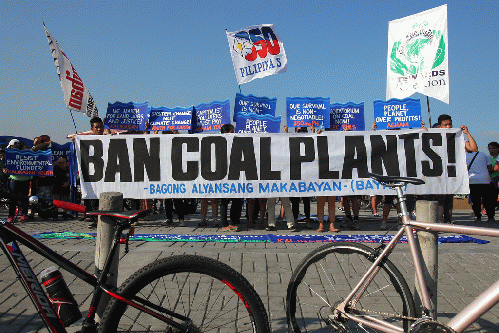From Guardian
Last year, there were a record 227 killings globally. It is our duty to keep resisting the insatiable forces that led to their deaths
Each year, we learn more about the climate crisis. The data flows: ever-rising heat, unprecedented deforestation, record rainfall. And once a year, we also learn more about the human impact of the crisis too, as data is released on the killings of land and environmental activists, the very people highlighting and protesting at the breakdown of our climate. As Global Witness' annual report reveals, in 2020, that number rose to a record 227 killings worldwide.
Every time, the data hits me like a blow to the face. I've spent much of my life as an environmental activist and journalist, and so if I haven't actually met the people sadly on this list, I've met hundreds exactly like them. Strong local people, attached to place and community, seeing their role in defending terrain and ancestral territory. Every person like this around the world is at risk.
And they are at risk, in the end, not so much because of another local person who pulls the trigger or plunges the blade; they're at risk because they find themselves living on or near something that some corporation is demanding. Like Fikile Ntshangase, the South African grandmother who led a spirited campaign against a coalmine in KwaZulu-Natal province and was shot dead in her home last year. Or Ã?scar Eyraud Adams, the indigenous activist who, during Mexico's worst drought in 30 years, vocally advocated for his community's right to water, as the authorities denied them and granted corporations ever more permits. Oscar was shot dead in Tecate last September.
The demand for the highest possible profit, the quickest possible timeline, the cheapest possible operation, seems to translate eventually into the understanding, somewhere, that the troublemaker must go. The blame rarely if ever makes its way back up to a corporation's HQ. But it should. Especially since the people who inhabit these places never really share in the riches produced there: colonialism is still running strong, even if it's dressed up with corporate logos or hidden with offshore bank accounts.
Meanwhile, the rest of us need to realize that the people killed each year defending their local places are also defending our shared planet -- in particular our climate. The activities that flood our atmosphere with carbon -- fossil fuel extraction and deforestation -- are at the heart of so many of these killings. When people stand up to block a pipeline, or an illegal mine, or a new plantation slated for an old forest, they are also standing in the way of the activities that threaten us all. They make life harder for the oil companies and the timber barons, and in so doing strive to safeguard all of us from incessant temperature increases.
And as we try to head off that rise by moving to more benign technologies, such as solar panels and electric cars, we'll need to do so in ways that don't create the same kind of sad sagas -- cobalt mining or lithium production can be exploitative, too. If we took seriously the stories told in the Global Witness report, we surely would be able to better design these emerging industries.
Next Page 1 | 2
(Note: You can view every article as one long page if you sign up as an Advocate Member, or higher).
Bill McKibben is the author of a dozen books, including The End of Nature and Deep Economy: The Wealth of Communities and the Durable Future. A former staff writer for The New Yorker, he writes regularly for Harper's, The Atlantic Monthly, and The (
more...)






